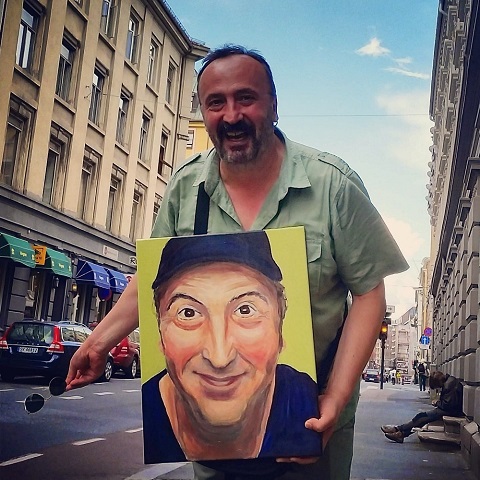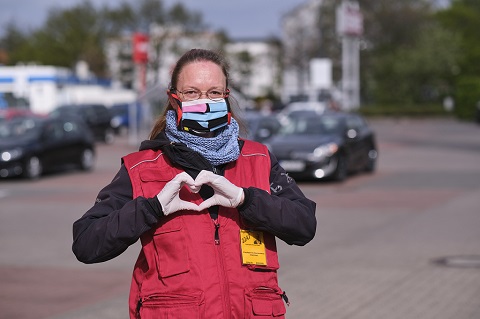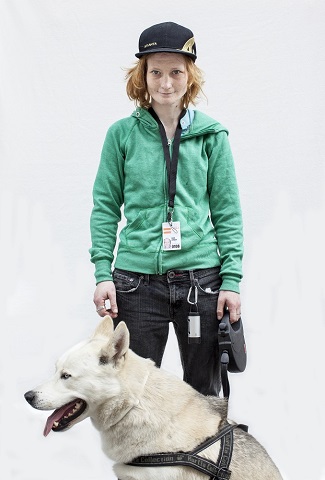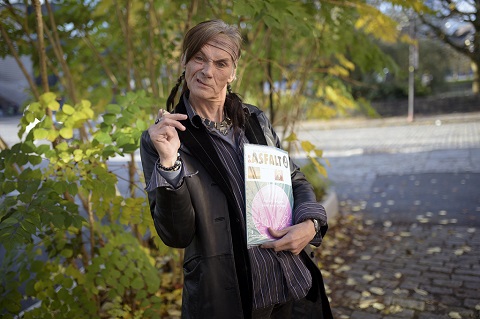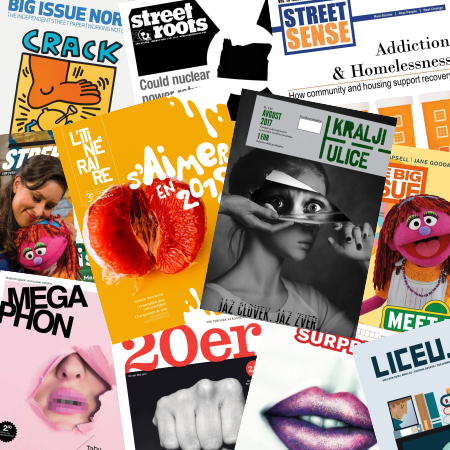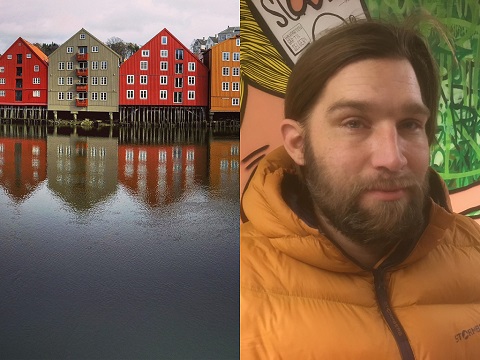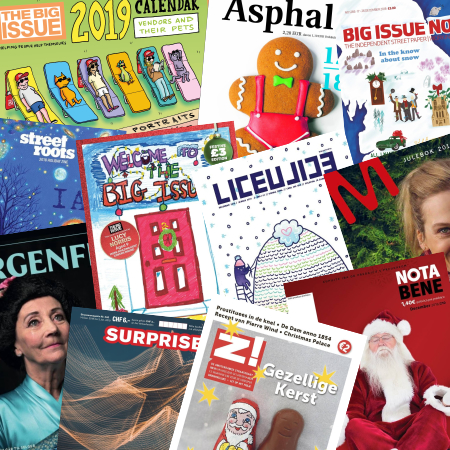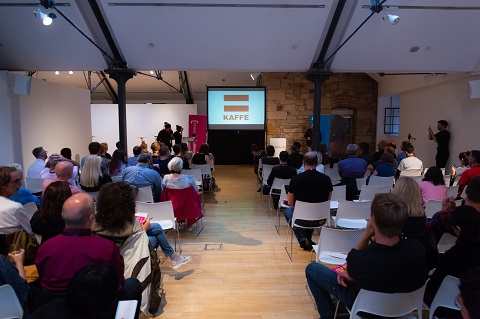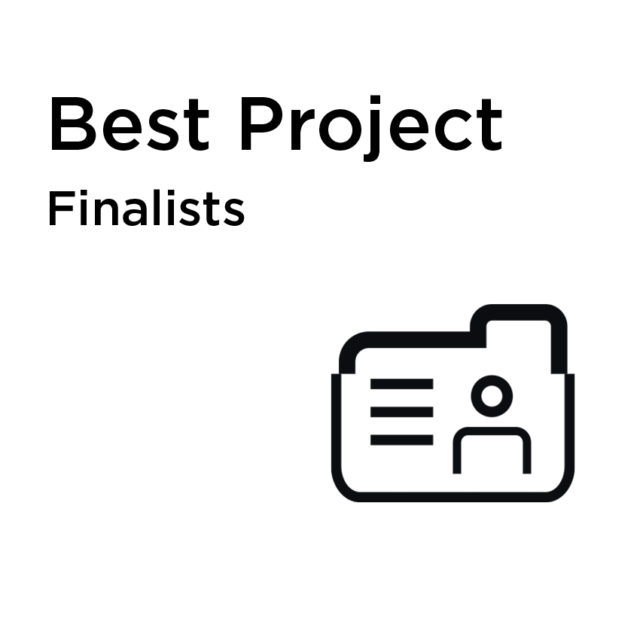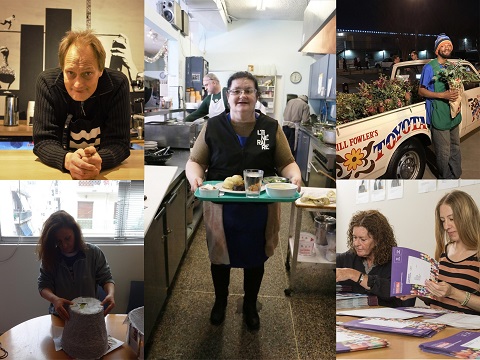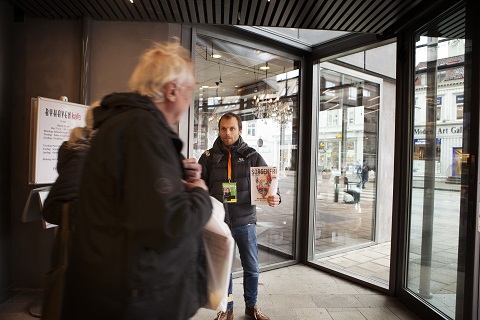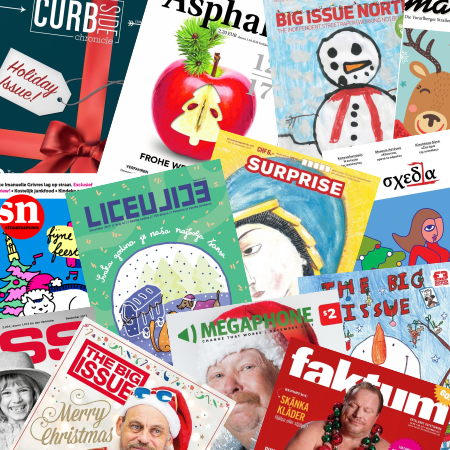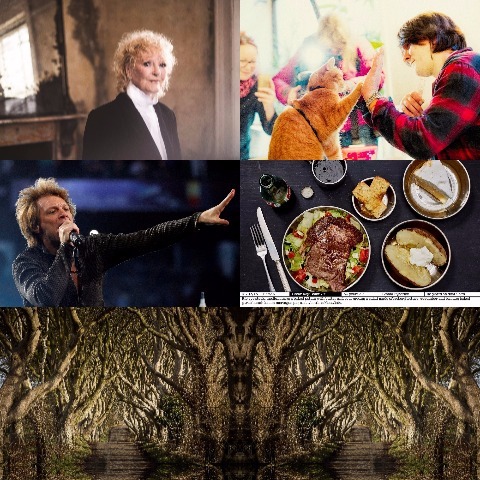By Even Skyrud, =Oslo
=Kaffe is one of a great many coffee bars in Oslo, but it’s the only one where most of the staff have a history of drug addiction, or are still using. The chic and charming space in Akersgata 32 has already become an institution in the already vibrant Oslo coffee scene. Customers have included Prime Minister Erna Solberg and Crown Prince Haakon and his wife, Mette Marit. It has been described as one of very best coffee bars in Oslo by travel bible Lonely Planet.
=Kaffe is also probably the only coffee bar in Norway with its own TV show. The show’s creator, Petter Nyquist, explains how that happened: “A lot of people wanted me to keep making ‘From the Streets to Nordkapp’ [another of Nyquist’s shows]. It was never an option for me. I didn’t want it to be one of those safe TV concepts that would run for series after series. I wanted to tell different stories, from different perspectives.”
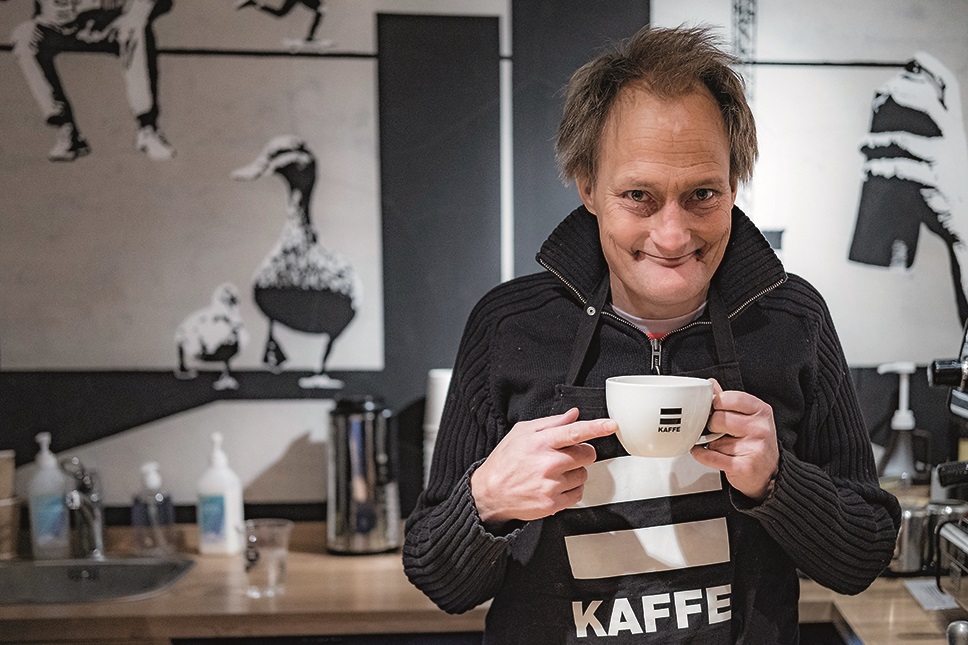
The first Petter Uteligger show was about meeting the people on the streets in their own element, where they spend their days – and on their own terms.
Then came ‘From the Streets to Nordkapp.’ It was about taking the people on the streets out of that life, out of fixed patterns, and to give them a challenge and an opportunity to make a change.
Petter knows the street magazine =Oslo well, and Stiftelsen Erlik (the Equals Foundation), the organisation that publishes it. He knows it through the people he connected with whilst living on the streets of Oslo for 52 days, filming his TV show, ‘Petter Uteligger’, in 2014/15.
When the manager of Erlik, Camilla Svingen, told him that they had plans for a new initiative, Petter knew there would be stories worth telling there.
For over a month, the film crew followed the seven central characters of the show. During this time, their aim was to create an elegant coffee bar in an empty and quite run down space in Akersgata. Not to mention becoming fully fledged baristas, ready to serve all kinds of caffeinated beverages to the capital’s most discerning customers. The staff all had a history of drug addiction, several of them still using. Almost all of them had been an =Oslo salesperson.
In June last year, the coffee bar opened – to rousing cheers and its own street concert.
Nyquist is careful to underline that Stiftelsen Erlik is behind the project =Kaffe and owns and runs the coffee bar in Akersgata 32. He just got to join in along the way. “The show is about reaching a goal, about achievement, change and not to mention the change for a new opportunity,” he says.
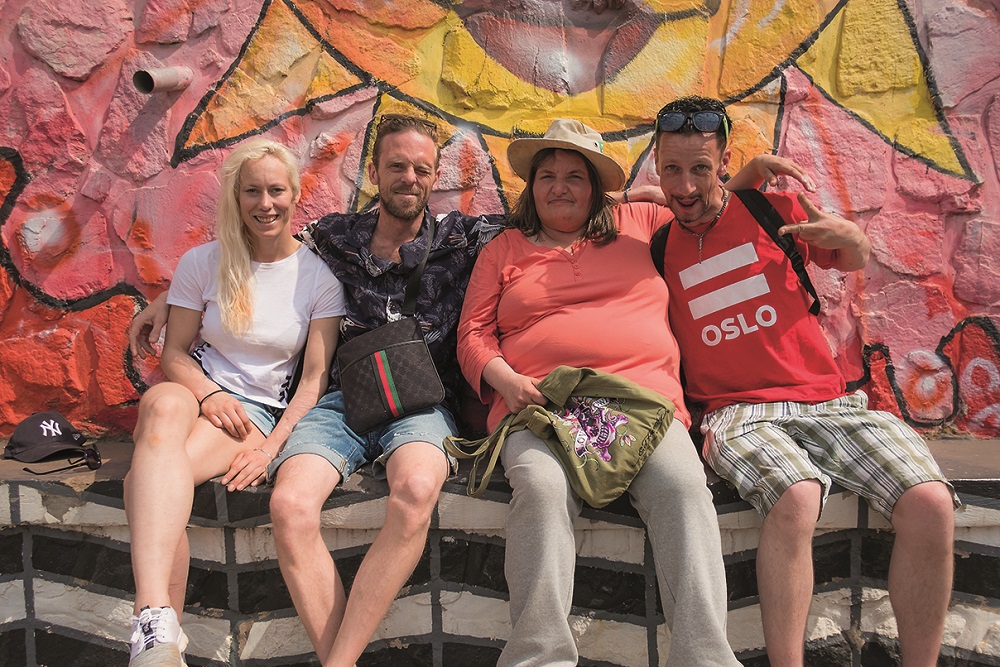
The stories of the new baristas have moved Petter. They’ve made him proud on their behalf. He got to know Christer Modin during his time on the streets of Oslo, and they’ve stayed in touch since. He explains that seeing what the training and work at =Kaffe has done for his friend is especially powerful: “It’s quite something to go from watching the first episode, and seeing how tired and unwell Christer was then, with kidney failure and open wounds on his legs, to seeing him today! He’s behind the counter, beaming, making cappuccinos and joking around with the customers. That alone has made all this hard work worthwhile.”
“And it sure has been hard work at times,” barista Gro Anita Flaen Sakestad says.
Like Christer, Gro Anita works at =Kaffe. She is a familiar face for those who’ve followed Petter’s previous shows. In ‘Petter and the Next of Kin’, viewers meet a young girl in a constant battle with the people around her, with the government, not to mention herself. When I meet her at her place of work, it’s strange to think of her as the same person, now sitting there patient and jolly, talking about some intense days at the end of June 2017: “We had been on a trip to Rwanda to learn about coffee. When we got back, there were only a few days until we were opening the shop, and we had a lot left to do, so I couldn’t do anything but show up and grind. I brought my dad, as well. So we worked day and night to reach our goal before the opening day. It was tiresome, but I just thought, ‘I’m so lucky to be a part of setting up something like this from the start.’ It was awesome getting to experience that.”
When Gro Anita was offered the job at =Kaffe, which included being on the TV show, she didn’t immediately answer yes: “I was sceptical towards more TV. I’m a natural sceptic. But I also like to jump into things. So even though a big part of me resisted and said no, I mulled it over and asked people about what was going to happen and who was gonna be in it. Then I thought, “Okay, I’ll take it as a challenge and an opportunity.” Because actually, I do enjoy challenging myself. Besides, I was afraid of regretting it a lot in the end if I hadn’t joined in.
“And if there’s something I really hate, it’s sitting around regretting things,” she says.
She adds: “Actually, I don’t like watching myself on TV but it helped a bit to watch myself in the ‘Petter and the Next of Kin’ episode. There, I was completely out of it. So I thought, ‘It can’t get any worse than that.’ Still, it’s weird to see myself in the beginning of the show about =Kaffe, because I was still taking drugs then. In some of the scenes, it’s like my eyes are popping out of my head. When I watch that, I just start laughing. Oh my god. But then again, I started laughing when I was in a car that almost crashed, too. So I don’t know.”
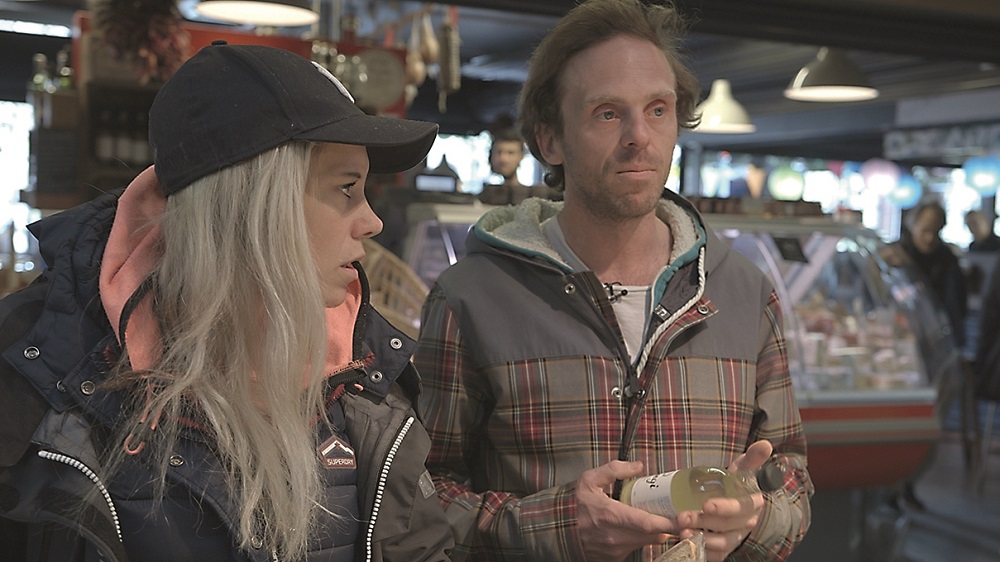
Petter also admits that it was hard at times. There were a lot of obstacles along the way: “The first challenge didn’t exactly come as a surprise. It was mainly about gathering the whole gang.
“From experience, I know that people who live under these circumstances aren’t always able to keep appointments. They have other priorities; unforeseen things can happen; they can have a really bad day. Besides, they don’t always get to notify you if something got in the way. There’s a fair share of waiting, courses that someone’s gonna miss out on and so forth. I had to hand out alarm clocks to some of them,” Petter laughs.
When Gro Anita is asked what the most difficult thing she experienced during the filming of the show was, her answer is unexpected: “Absolutely the hardest thing I experienced was when we visited a family of homeless children in a PLAN village in Rwanda. Five children, the big sister at the age of sixteen taking care of her four younger siblings. She got some casual work, but couldn’t get work more than two, three days a month digging ditches. When we had to leave, I just broke down. The thought that we were going home to a safe, rich country and complaining about our tiny problems, and here these children have to take care of each other, and go to bed hungry.”
The first of ten episodes aired on the 28th of February. Both Gro Anita and Petter agree that many will benefit from watching ‘A New Opportunity.’ “Everybody should watch the show because it will give them a new perspective on those of us who aren’t visible in society, and what we can actually contribute; contribute like you ordinary people. See that we also have resources. If you’re in doubt, watch. And if you turn your nose up at what you see, you should still give it a go.”
Translated from Norwegian by Ingvild Nærum




